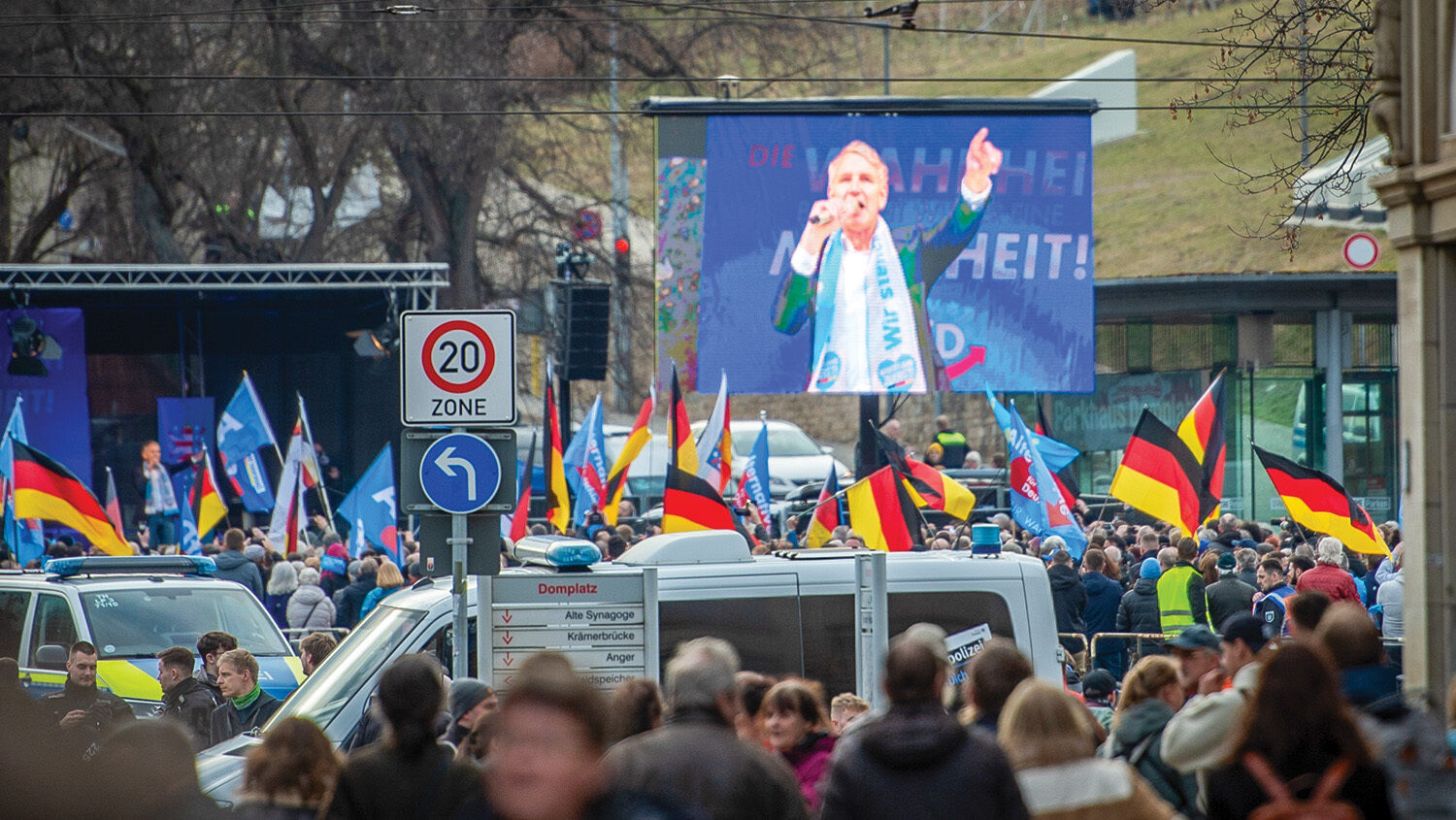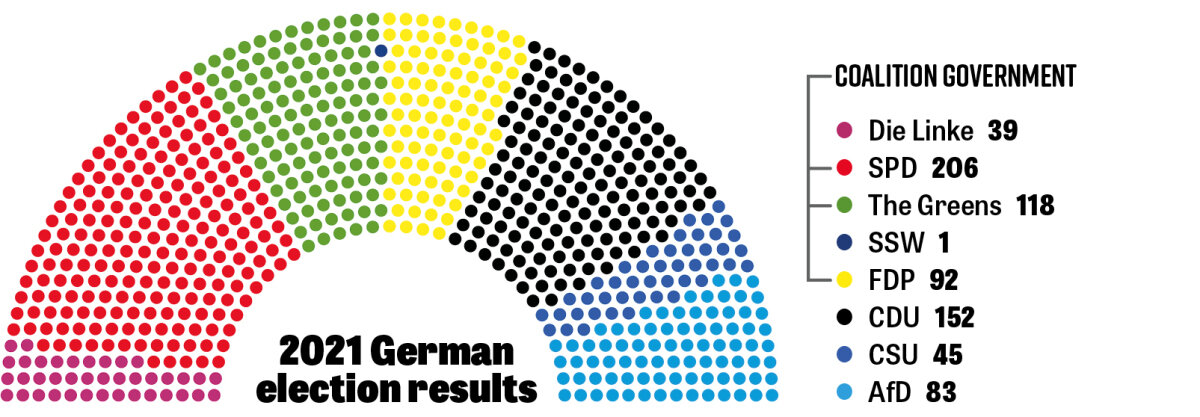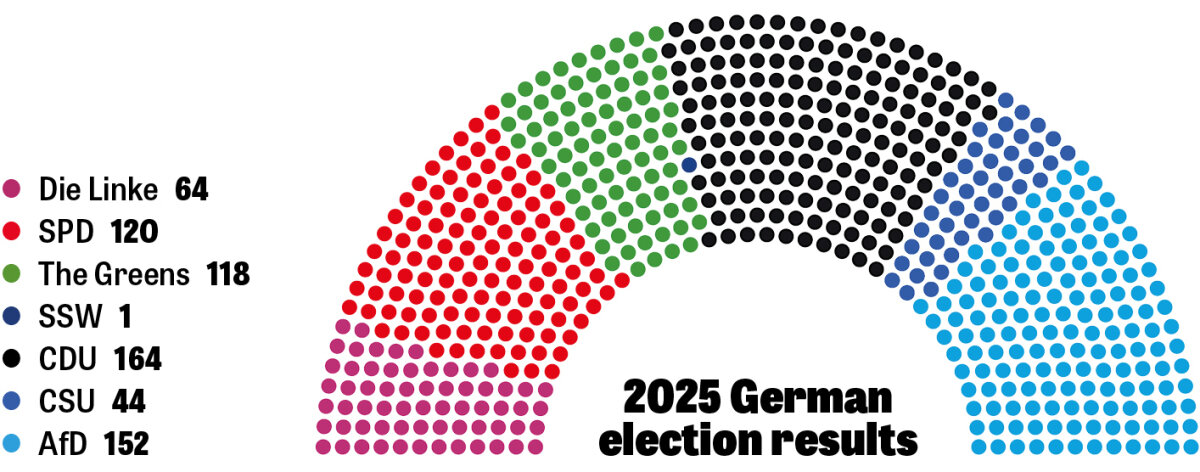Angry German Voters

Angry German Voters
Germany is undergoing a profound transformation. Terrorists are butchering German children, citizens are attacking politicians, and economic crises are driving people to desperation. Anti-Semitism has surged in the past two years, fueled by right-wing extremists and violent Islamists.
German voters responded to these dramatic changes in the February 23 elections.
In 2021, the whole north of Germany was won almost exclusively by the liberal Social Democrats (spd). In 2025, almost every district was won by either the conservative Christian Democratic Union (cdu) or the far-right Alternative für Deutschland (AfD). While the AfD previously won only a small section of Eastern Germany, this time it won almost all of it. It is now the largest party in all five former East German states. Meanwhile, for the first time, the far-left party, Die Linke, won districts in the former West and became the biggest winner in Berlin (20 percent).

The winners: The conservative parties (cdu/csu), led by Friedrich Merz, improved their vote share by 4.4 percentage points, securing 28.5 percent of the vote. The AfD came in second, doubling its vote share to 20.8 percent. Die Linke also nearly doubled to 8.8 percent. Sahra Wagenknecht Alliance (bsw), a new populist party, attained 4.97 percent. However, missing the 5 percent threshold, it did not secure any seats. Die Linke is the successor to the East German Communist Party, and bsw recently split off from Die Linke; combined, that is nearly 14 percent to the extreme left.
The losers: The previous coalition partners combined—the sdp, Greens and Free Democratic Party (fdp)—lost close to 20 percentage points. The spd was the biggest loser, with a 9.3 percentage point drop to 16.4 percent—a historic defeat. The Greens dropped to 11.6 percent. The fdp suffered a fatal setback, dropping to 4.3 percent and thus also missing entry into parliament.
Winning the Young
The extreme left and right are especially popular among young people. Die Linke won the most voters ages 18 to 24, securing 25 percent; among young women it was first, with 35 percent.
In the same age group, the far-right AfD was most popular among men, gaining 27 percent of the vote; it won 21 percent overall in the age group, second behind Die Linke. The AfD also won most voters ages 30 to 44, with 26 percent. If this trend continues, the far left and far right will soon be competing for first and second place.
Why the stark difference between the generations?
Back in the June 1998 Trumpet, Gerald Flurry warned of this trend. Regarding a far-right party’s gains in Eastern Germany, he wrote: “Thirty percent of the young people under 30 years of age voted for these pro-Nazis. Many young people said they ‘wanted a new man with new ideas.’ Or is it a new man with old ideas that they desire? Hitler also had an enormous appeal to Germany’s youth. This age group knows less about their own history.”
An entire generation has been born since the fall of the Berlin Wall. They have no memory of growing up in a divided country or under Communist rule. They take private property and free speech for granted and thus happily vote for the far left that seeks common cause with Communist nations and wants to plunder the wealth of the rich.
Almost nobody living in Germany today has a living memory of the Holocaust. Thus they are little concerned when AfD party members question Germany’s Holocaust memorials, and they cheer when AfD leaders say Germany should rise above its past.
But Germany’s past is repeating itself in the present.
Troubles Rising
German politics are drifting to violent extremes. In 2023, Germany saw 60,028 politically motivated crimes. Of those, 28,945 were right wing (a 23 percent increase from 2022) and 1,270 were violent. Left-wing crimes contributed 7,777 cases (an 11 percent increase), of which 916 were violent. This marks the highest level since the government started tracking more than 20 years ago.

Last year the Federal Criminal Police Office recorded 4,923 crimes against members of parliament, public officials and elected representatives, compared to 4,047 incidents in 2023.
In 2023, there were 2,378 attacks on refugees in Germany registered, almost double the number in 2022.
In 2022, authorities recorded 2,641 anti-Semitic offenses; in 2023, the number more than doubled, to 5,671. Provisional figures for 2024 indicate a similarly high level, with 5,177 registered crimes. Of these, 1,165 were attributed to the political right; another 926 fell under the category of “foreign ideology.”
These alarming trends echo the darkest chapters of history and serve as a stark warning—not only to the German people but to the entire world.
